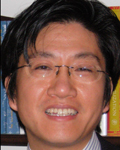2010, 2014, 2018
Guolong Lai
- Associate Professor
- University of Florida

Abstract
This project explores the production and uses of manuscripts in the courts oflocal kingdoms of the Western Han dynasty (206 BCE-24 C.E.) through case studies of the Mawangdui, the Shuanggudui, the Huxishan, and the Bajiaolang manuscripts, all excavated from tombs of the local kings, princes, or high ranking officials of early Western Han. Local courts were the centers of manuscript production and scholarship in the Western Han dynasty. This project treats excavated manuscripts first and foremost as archaeological artifacts, and uses them to explore the materiality of the written communication in early China. Borrowing concepts and methodologies from Western sociology of texts, textual criticism, and print culture studies, it discusses the features and nature of textual instability in early China, and traces the formal features in excavated manuscripts that resulted from the measures which early Chinese readers and producers employed to stabilize early Chinese texts. It was the establishment of a bureaucratic system of government that was the background for the training of scribes, the spread of literacy, the creation of reading and writing communities, and the production and circulation of texts. To understand the social conventions of reading, writing, and textual production is significant not only for the interpretation of excavated manuscripts but also for a better understanding of the vast corpus of received texts.
Abstract
Myths of the “Indiana Jones” type, in which archaeologists conquered and explored exotic landscapes in search of hidden treasures, have encouraged the public to dream romantically of archaeological adventures abroad. However, the hidden (or not so hidden) cost of such undertakings has typically resulted in the destruction of archaeological sites and often one-sided narratives of “discovery” that overlook the historical culture and geographical context in which the finds were located. This upcoming workshop at the University of Florida will bridge myth and reality by bringing together a multi-disciplinary, international group of scholars including those from China and Taiwan, to study colonial archaeology from a variety of angles and methodologies. By bringing in scholarly contributions from the East and West, and capitalizing on the wealth of scholarship being done at the University of Florida in the history of Chinese, South American and African archaeology, we will not only bring the history of Chinese archaeology into a global discussion, but also facilitate fruitful exchange on the subject of archaeological heritage as a rich source of mythmaking in colonial and semi-colonial contexts. We will explore why monuments and antiquities constituted such a volatile set of symbols by which former colonies redefined themselves during and subsequent to decolonization.
Abstract
This workshop aims to examine the overarching significance of the Poetry (Shijing) in light of the excavated bamboo and silk manuscripts from early China. We will invite scholars from the West and Asia to share strategies for deciphering and understanding the archaeologically discovered manuscripts related to the Poetry. Their areas of expertise range from Chinese paleography, philology, phonology, philosophy, history, and culture studies. Scholars will have the opportunity to read the galley proofs of the Warring States (453-221 BCE) Chu bamboo manuscripts acquired by Anhui University in 2015, which will allow them to explore various possibilities in deciphering the scripts, examining the materiality of the manuscripts, and interpreting their literary and aesthetic significance.

